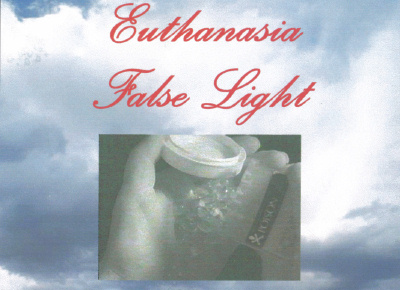2021
A prescribed suicide bill (HB 2202), titled the “Kansas death with dignity act,” has been introduced in Kansas.
Text of HB 2202
Current law regarding assisted suicide
Assisting suicide is a felony in Kansas.
Assisting suicide is knowingly, by force or duress, causing another person to commit or attempt to commit suicide, or intentionally assisting another person to commit
or attempt to commit suicide by
providing the physical means by which another person commits or attempts to commit suicide; or participating in a physical act by which another person commits or attempts to commit suicide. [K.S.A. § 21-5407] (See full text of law at “Assisted Suicide State Laws.”)
2019
A doctor-prescribed suicide bill (HB 2089), titled the “Kansas death with dignity act,” has been introduced in Kansas.
Text of HB 2089
2017
Another Oregon-style doctor-prescribed suicide bill (HB 2120), titled the “Kansas Death with Dignity Act,” was introduced. The bill did not pass in 2017.
Text of bill
2015
An Oregon-style doctor-prescribed suicide bill (HB 2150), titled the “Kansas Death with Dignity Act,” was introduced in Kansas. It failed to pass.
Text of HB 2150
Scroll down for articles
Attempts to legalize assisted suicide in Kansas
In January 2013, HB 2108, titled the “Kansas Death with Dignity Act,” was introduced. With one major exception, it is virtually identical to the Washington and Oregon doctor-prescribed suicide laws and to the many failed attempts to pass similar legislation in other states.
That exception is extremely important. It is the definition of “terminal disease.”
While the WA and OR laws and other doctor-prescribed suicide proposals have defined a terminal disease as an incurable and irreversible condition that, within reasonable medical judgment, will produce death within six months, the Kansas bill includes no predicted life expectancy.
It merely defines a terminal disease as “an incurable and irreversible disease that has been medically confirmed.” That definition would “qualify” individuals for a lethal prescription even if they have a life expectancy of many years as long as the condition is considered incurable or irreversible.
Thus, conditions such as Celiac disease, alcoholism, bi-polar disease, HIV, etc. which although controllable, are incurable and irreversible, would meet the definition of terminal disease contained in the Kansas bill.
Articles
“KS Assisted Suicide Bill Open-Ended“
(National Review — March 11, 2013)
American assisted-suicide advocates pretend they want a very narrow license for “terminally ill” people for whom nothing else can be done to alleviate suffering….But every once in a while, a little truth seeps in.




